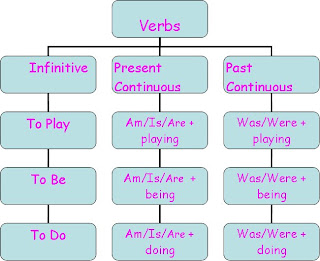- Past Continuous.
Past Simple

Irregular verbs:
To beat-->beat-->derrotar
To win-->won-->ganhar/vencer
To lose-->lost-->perder
To draw-->drew-->empatar
PAST CONTINUOUS

e.g. I was having a bath.
-->Use: to talj about a situation that was in progress the past.
-->Form: To Be in the past simple + _ing form of the main verb
-->was ( I, she, he, it) e.g. To have/having
-->were (you, we,they
E.g.
- Paulo was paying attention to her teacher. -->Affirmative
- Some students weren't listening to the teacher. -->Negative
- Was Liliana copying the lesson correctly? -->Interrogative
ATTENCION:
--> When and while often appear with this verb tense.
e.g. When I was having a bath--> past continuous; the light went off.-->past simple
While we were taking the breakfast, my father called us.




